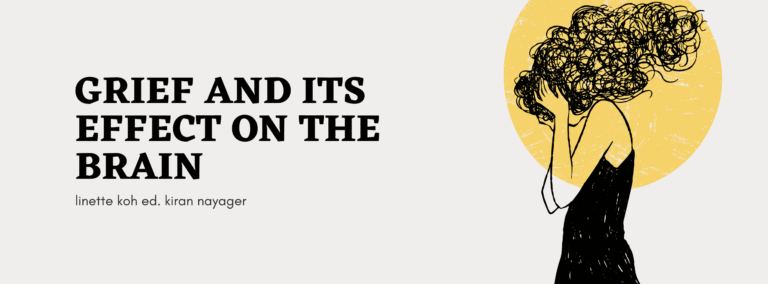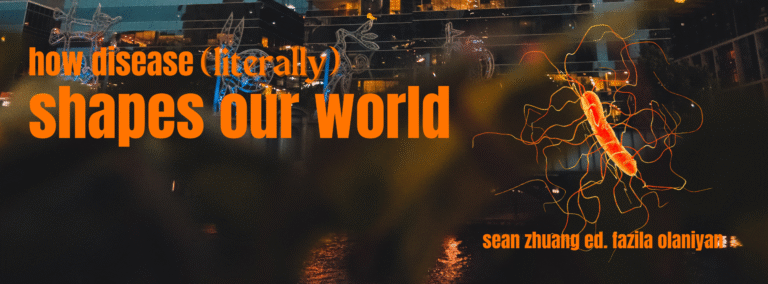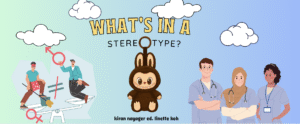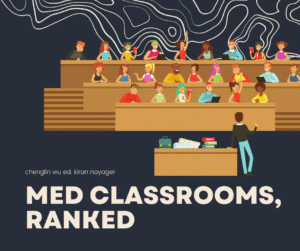
by JULIANNA WAN and LUANA SAWMYNADEN
Known fondly by UNSW medical students as Student Wellbeing Advisor, Professor Ute Vollmer-Conna opens up about her life before being the distinctive character we all love and cherish, attracting humans and animals alike and how to better care not only for ourselves, but also for one another.
Run us through your role as a Student Wellbeing advisor.
The role of the Student Wellbeing Advisor was established to provide support and assistance to students in all 6 years of the medical course who experience difficulties of a personal, psychological, psychiatric or medical nature. To give confidential assessment and advice, coordinate appropriate help, and act as an advocate for students in their interaction with the Faculty as needed.
It was originally meant to be only 4 hours per week of clinical work since my primary role is academic, that’s chiefly research and teaching. But, as you can imagine, 4 hours barely scratched the surface…
I have been here at UNSW Medicine since the 90’s, when there were no specific advisors. Naturally, students were already having issues. I was running a teaching department in the old second-year curriculum and well, the students knew me and quite liked me, since I am a bit of a character after all! I have had this sofa forever and students would come in and camp out in my room, asking me about whatever was on their minds. You could say I have always been doing wellbeing advising.
There was also an anatomist before, Liz Tancred, and she was similar: very personable and the students just loved her! She would run the first years and I was the “second-year person”. Whenever some in particular worried her though, she would send them my way since I have clinical training and know more about psychological and psychiatric issues.
But this was then not a concrete role and it was only when Professor Jones asked me in 2012 that I officially started taking care of our entire Medical student cohort . Before, other people were employed from the outside, including a GP for one morning per week. These people usually had a narrow window for appointments and students also had their busy timetable to tend to.
There was some concern about whether students would come to see me in this peculiar role while still being part of the Medical faculty – they may feel it compromising to come given the stigma still surrounding mental health issues in Medicine. There is likely to be a small proportion of students who probably still feel that way and are generally worried about the whole stigma of admitting to not being well. However, what set me apart from the start was that, unlike those outside people whom students barely knew, I was a familiar face! They attended my lectures and could watch me from afar to gauge what kind of person I was, without having to identify themselves. They would often come down to meet me and open up, sometimes even be encouraged by their friends who I had already been seeing. I know the course really well, I know at what stage students are struggling and how to help. Everyone in the Faculty also knows me and works with me to do whatever is possible when I ask for something on behalf of the student, without needing to break the student’s confidentiality about what the health problem is (e.g. special consideration for extra time or extra leave).
Anyway, I see a lot of students! A big portion of my day is really just dedicated to them: I make myself available in the afternoons, though it can sometimes drag on till 7 o’clock at night, if needed (especially during 5th and 6th year exam time). Sometimes I see as many as 20 a week, with some ringing me up from the countryside if they are really stuck or some keeping in contact even as interns..
I just have to make something clear though: I do not provide therapy. I see them, assess them and make sure they get the care they need. So, if someone is really unwell or suicidal, I get them to hospital, accident emergency or get the crisis team here. If someone has been abused, we often have the security and the police here in my room with the victim and I will be alongside them, talking and making decisions together. There are so many things that I do that are not prescribed as something I have to do: I just do what I think is necessary to help the student at the time..
How much time can you dedicate to each one of your students?
I think it is really important to listen so I usually take an hour per student. Everyone seems to think we can solve mental health problems by having more apps these days. I am a non-believer in this. All the ones I have seen who are really hurting don’t want to do anything online. They just want someone empathetic who listens to their problems and who is there for them, really. I usually accompany students through their journey of learning what the problem is to a later point, where I can be certain they are well-cared for: they are with someone they like, regularly receiving therapy, and they’re improving. Then, I let them go.
Until I know that for sure, I don’t just see them, listen to their story, tell them what to do and say: “Oh, what you need to do is to get a mental health care plan, find a psychologist…see you later!”. I say: “Why don’t you come back in 2 weeks’ time and let me know whether you have managed to find a good GP?”.
Are there people who never come back to you?
Yes, of course. If I am unable to help or if they just wished to run something past me and get my opinion on it rather than it being an ongoing situation, they often don’t come back. However, they tend to return the year after, when something else is happening. I think most people who have seen me once are quite happy to come back!
When is the right time to seek help?
If you are feeling bad and there is a reason for it, let’s say the boyfriend upsets you, a family member is sick, you fail an exam, then it is fairly normal to be upset. There are situations where feeling down is just a healthy response to something bad happening rather than depression. But if over time, you feel gradually worse about yourself and your feelings have no real reason and that whatever you try (e.g. talk to friends, exercise) does not help, that’s when you need to seek help. If it’s ongoing and scares you and you’re thinking you’re not being yourself. We all have a sense of how we are in the world and if you suddenly think “My god, this is not like me at all. What’s happening?” and/or you’re having feelings of such gravity that they stop you going about your normal day, or where you want to hurt yourself then you need to seek help straight away!
This is also where YOU as colleagues can come into it! There are people wandering around with clear mental problems and no one says a word about it. It would actually be helpful to say: “Look I’ve been watching you and you seem really out of sorts, would you like to talk or is there anything I can do?”, to someone who seems isolated or down. Sometimes people come up to me worried about their friends and then give me their emails but I can’t contact these students because of privacy concerns. As you know, it is professionally not appropriate to contact people against their will. You need to convince him/her to contact me….or at least let them know that you and others are here to help.
Why might some people not want to seek help?
Stigma’s a big one. For some guys in your age group it can be very difficult to come to terms with ‘who you really are’ and not to lie to yourself about it.; especially if that is not what is expected by the family or culturally My brother is a very wise man and he says the biggest mistake you can do is to lie to yourself. If you cannot be honest with yourself or you pretend something is not happening when it is, then you’re in trouble.
In med school, you are fairly protected to work through your problems; this whole faculty is incredibly supportive. This gives you an opportunity to sort out and face your issues. When you actually work through all your stuff and manage to get over it (which most of us do), that learning experience is priceless. Knowing by your own example what it’s like to be in a really bad state, how you fought and struggled through to overcome your difficulties and get to a better place – that journey is worth a lot to a doctor in terms of wisdom that cannot otherwise be gained. Because that’s something you can’t teach you have to live it.
If you never had a bad thing happen to you, in many ways, that’s good, but you can’t say with conviction that you know exactly what others are going through..
Tell us more about your life before UNSW.
I was born in Germany but I’ve been here for more than 40 years. When I came here, it was an opportunity to start again. At the time, there was this scheme after the Whitlam government where you could study, no matter who you were, after passing some entry exams and so I studied. I ended up doing a doctorate in Medicine and getting an academic position in Psychiatry so I was extremely lucky….and very grateful.
But I had no one here who paid for everything so I had to waitress at night to live and then study like crazy, while struggling with my own demons in between. It was hard but I look back so many times now and I think I can’t believe how lucky I am. My life now is just so incredibly rich: I have fabulous friends, I live in Maroubra (which has got to be the best place on Earth), I’m healthy and happy. When I go swimming in the morning and look at the ocean, I just can’t believe I’m actually here. But it goes to show: if you actually want to do something, you can. You have to just… struggle along and fight for it!
If you wanna know a bit more about me, there is a this UNSWtv clip called On The Couch where I was interviewed and I talk about my early life….. being a carpenter and a shepherd!
Link: https://www.youtube.com/watch?v=KisFo7b2Lko
Is that your cat? (proceed to pointing to Ute’s computer screen)
I’ve always had two cats, the current ones are Fritz and Bärli. I’ve had the most endearing animals arrive in various states of dishevelment at my house. I call them gifts from God and now, I’m imploring God to not send more gifts just as yet because when I finally get to retire, I really want to travel around Australia for a bit! We have a little retro caravan, and it will be a real trick to train the cats to come along in the caravan!
So it’s just not the humans that come to you, it’s all the animals?
Haha, just my magnetic effect! I would love to have a possum! The only animals I’ve ever had were ones that just arrived at my house. So I’m hoping for a possum… I’d be totally delighted if I could!
If you or any of your peers in UNSW Medicine are concerned for your mental health, please do not hesitate to contact Professor Ute: https://med.unsw.edu.au/student-wellbeing-advisor











